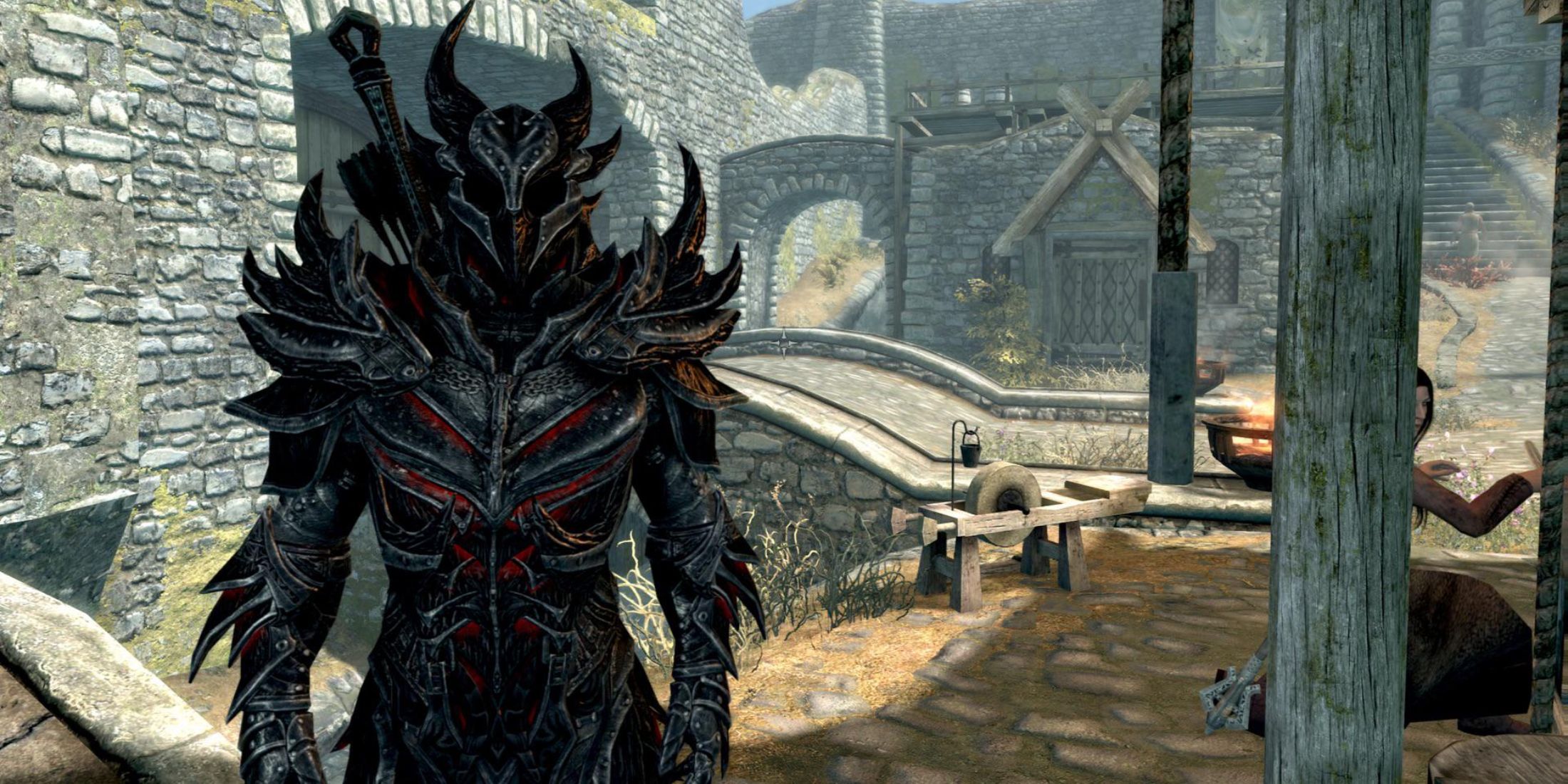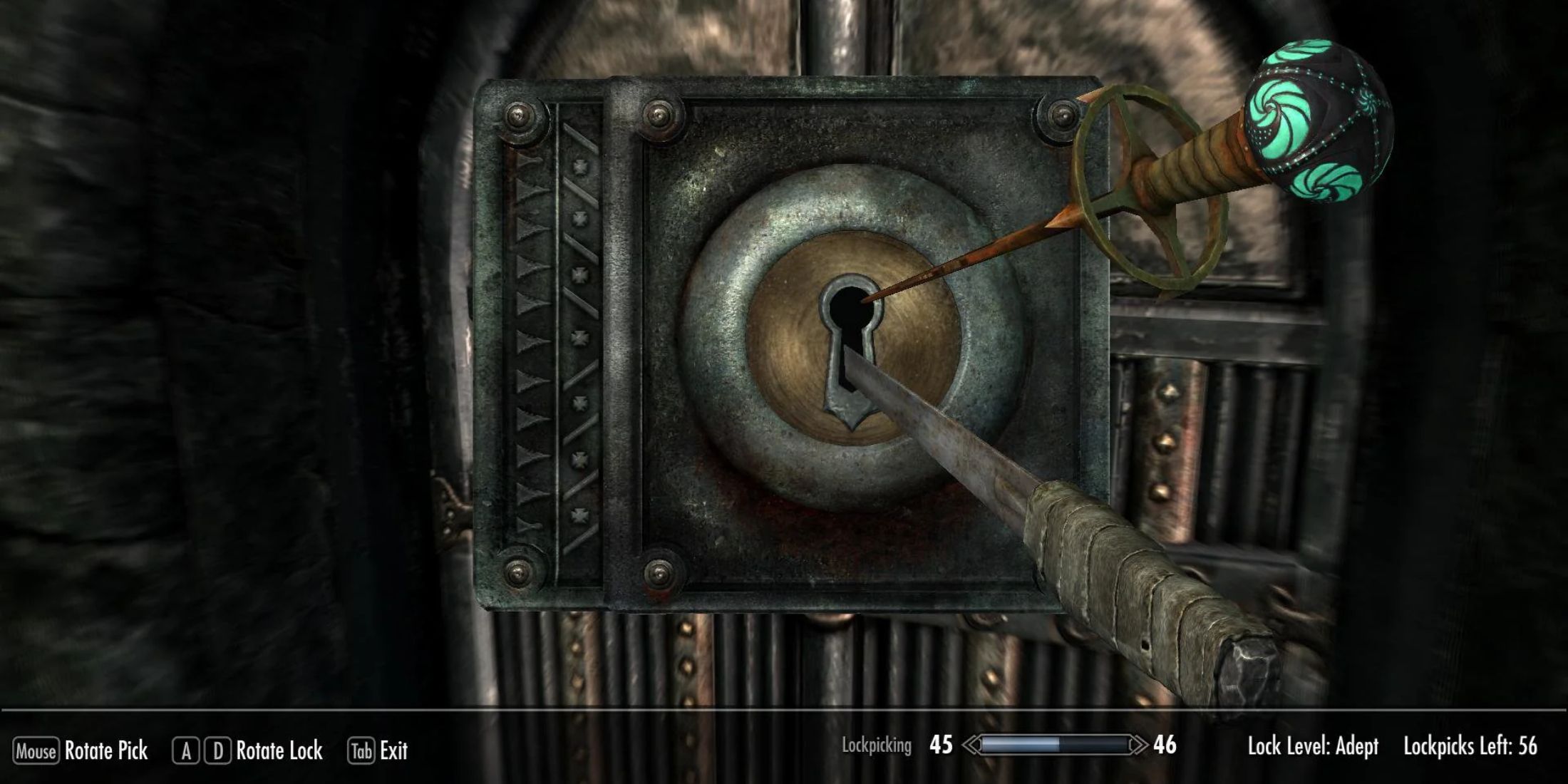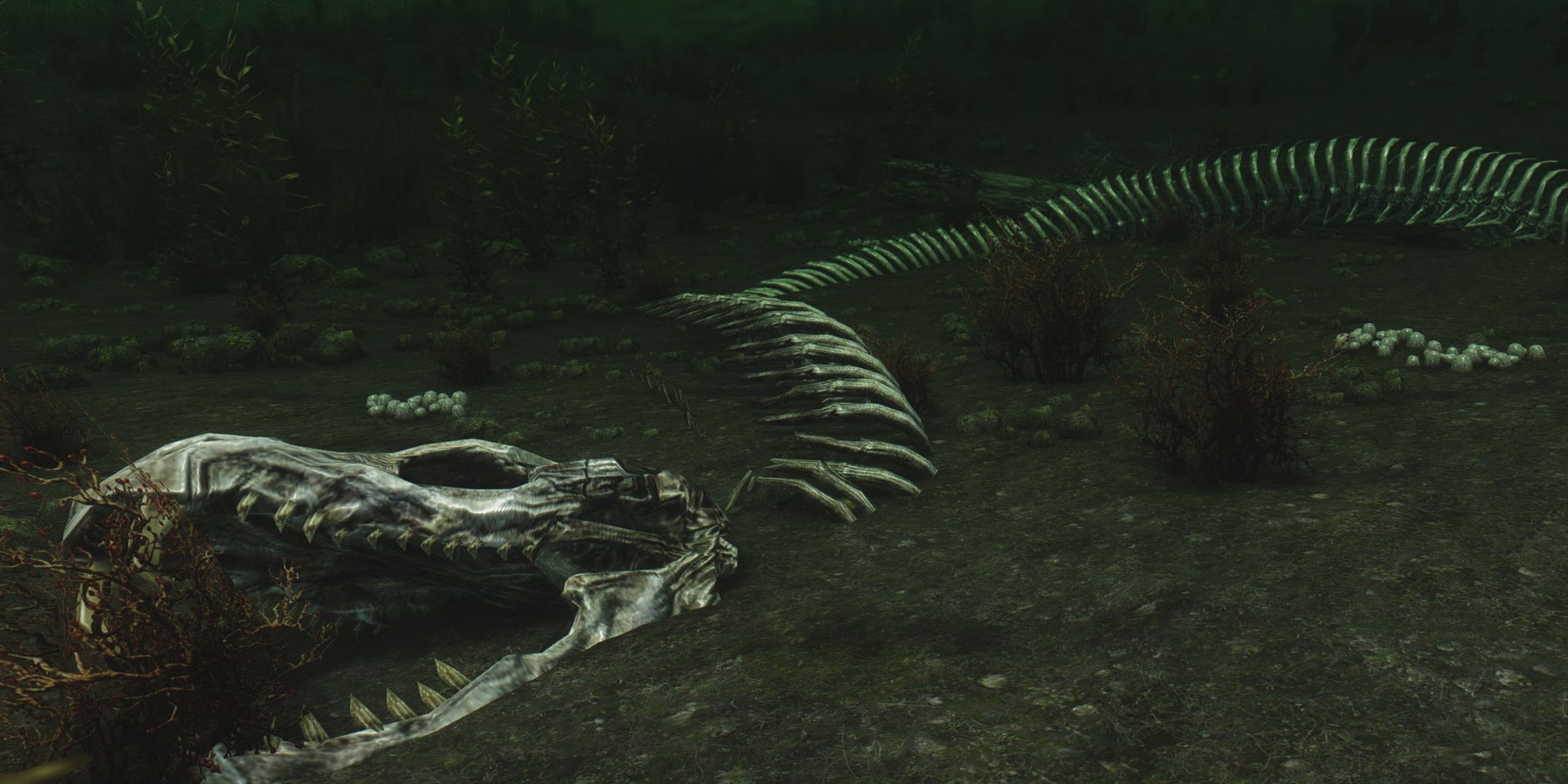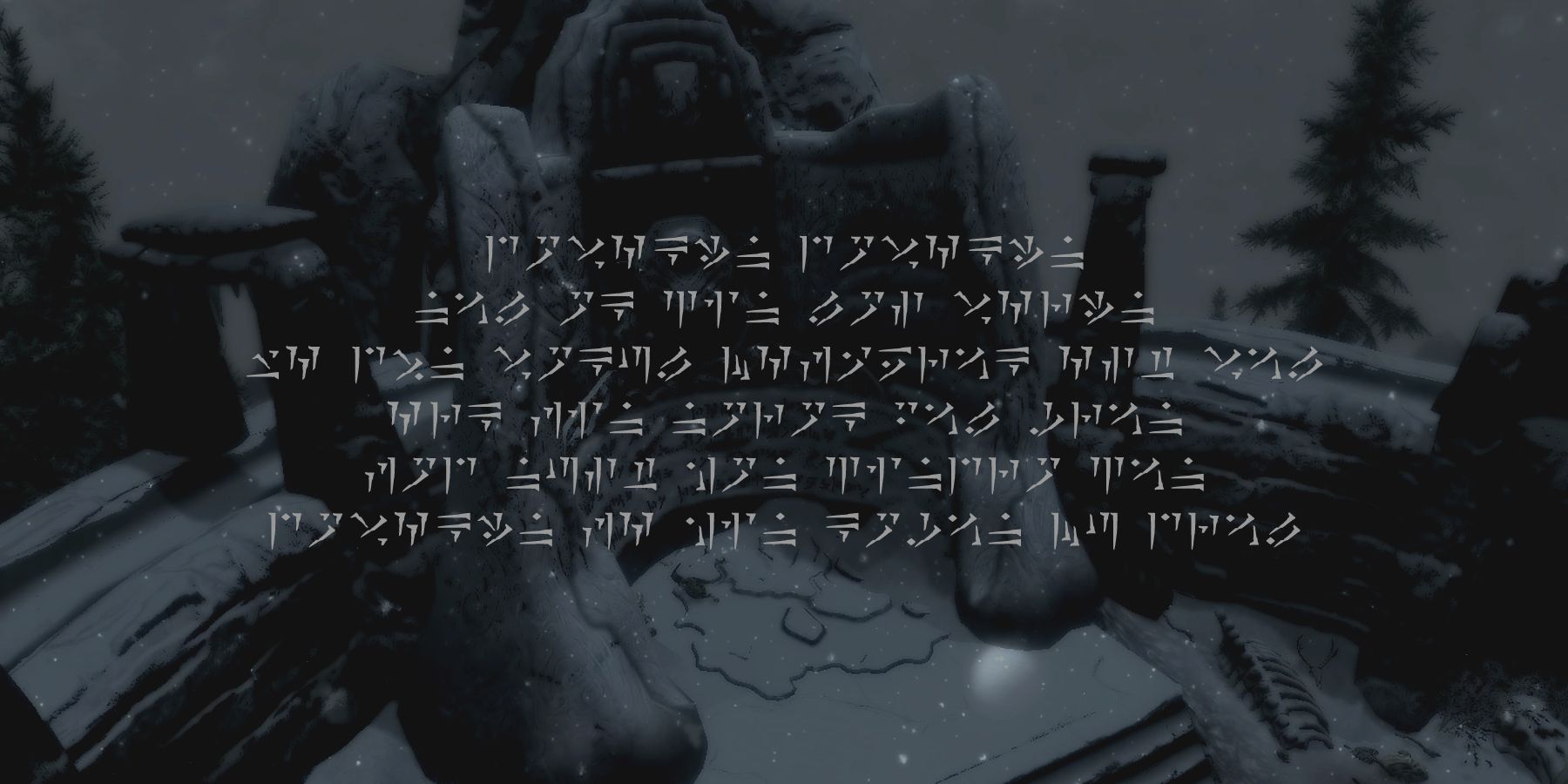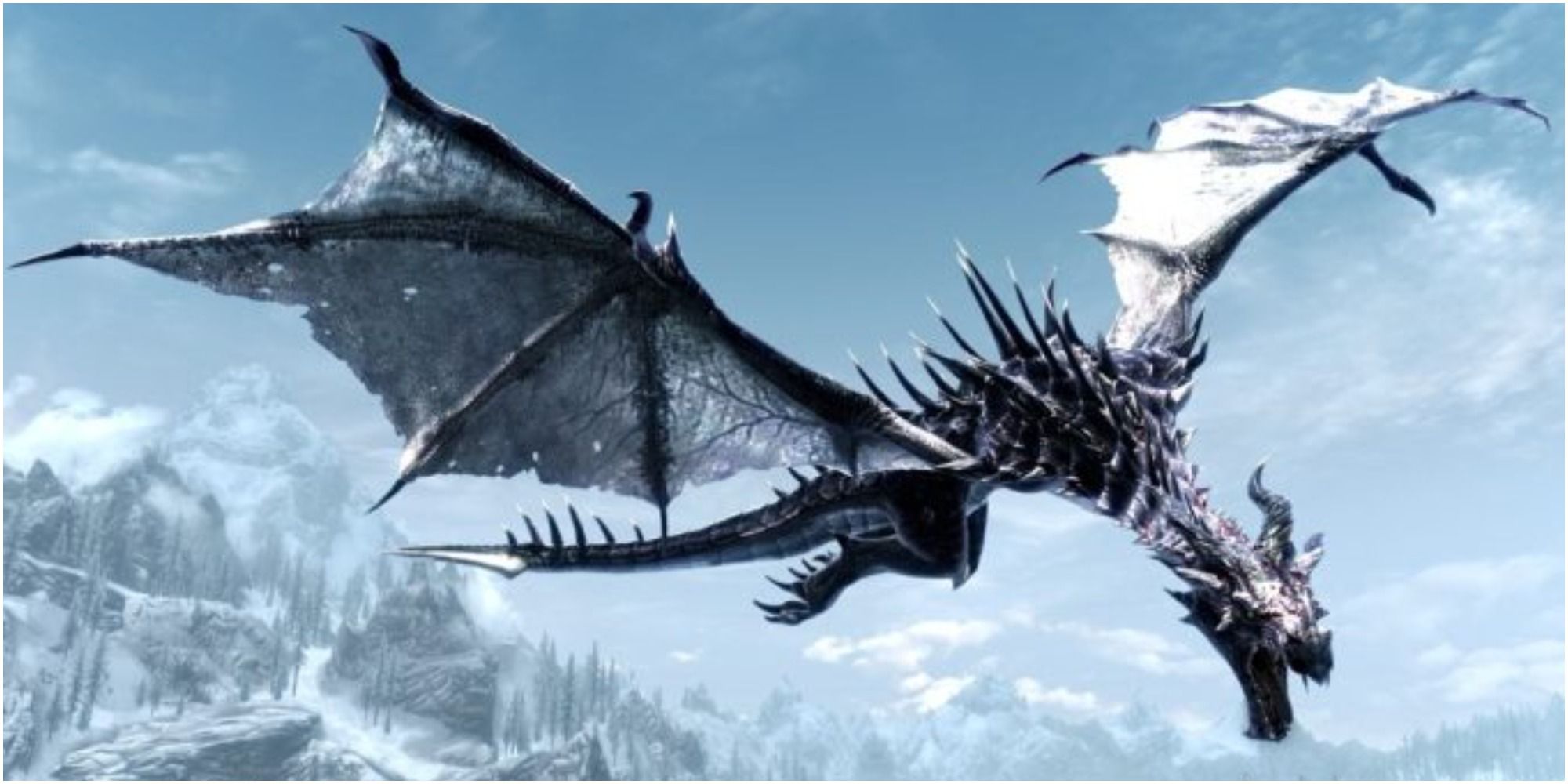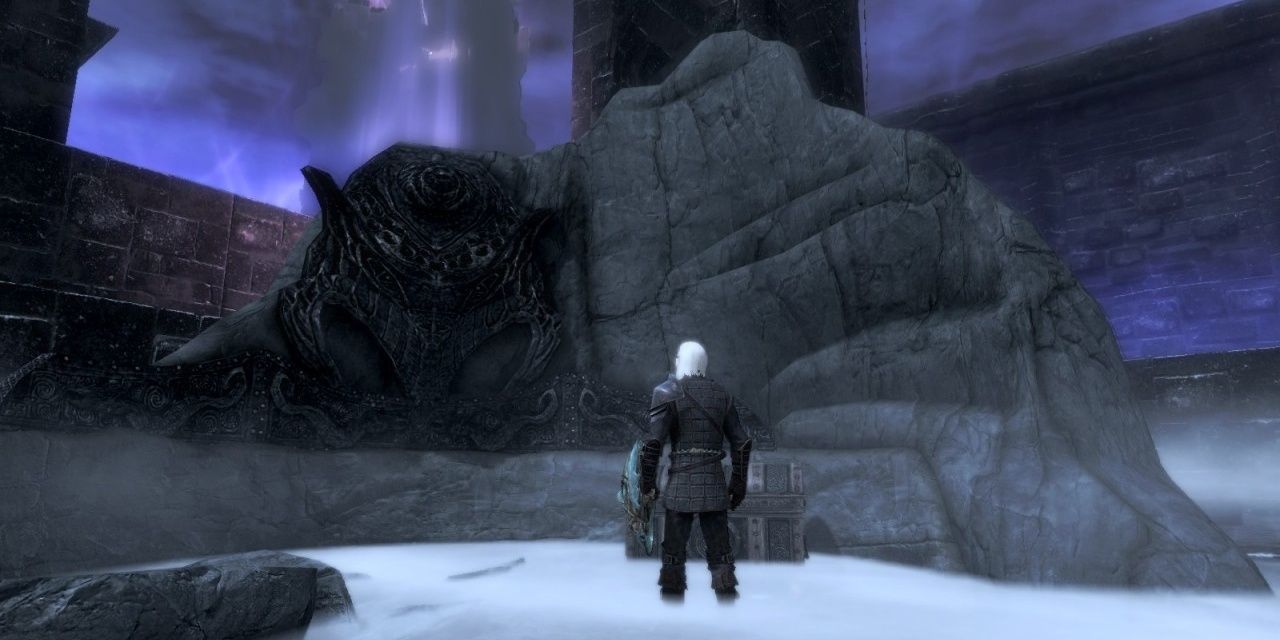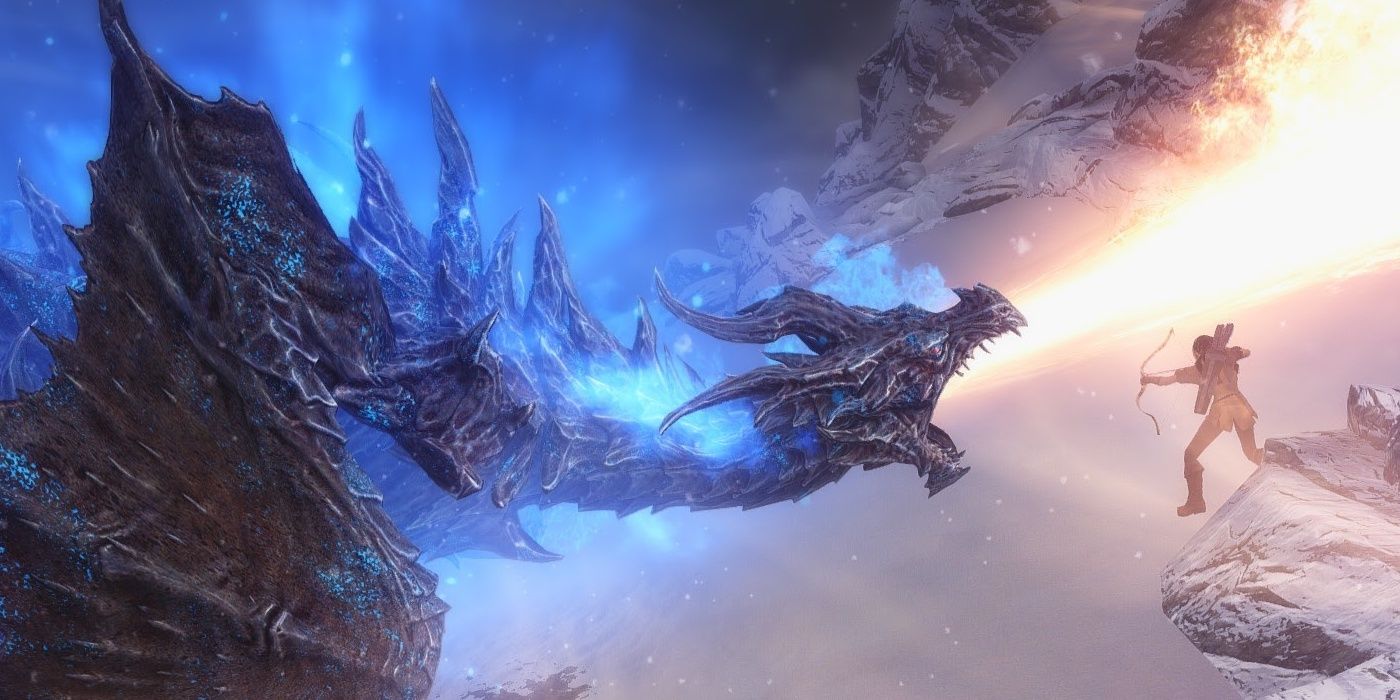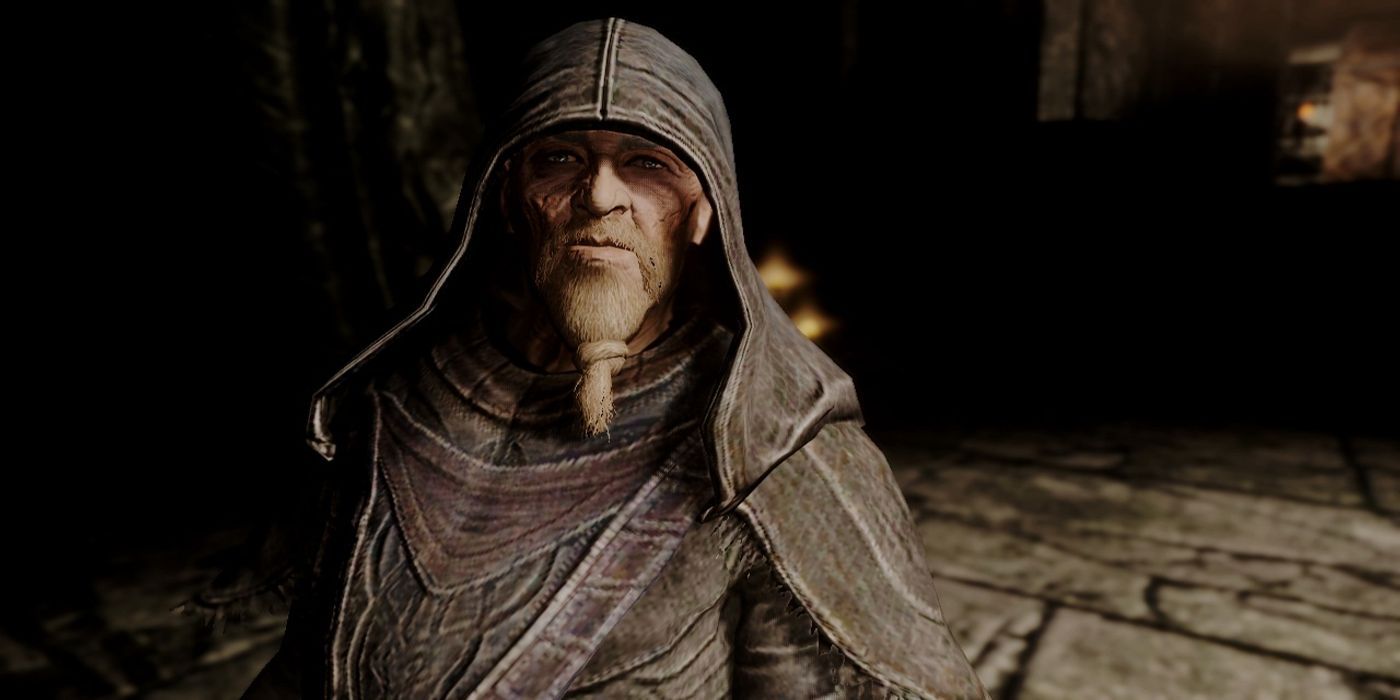The dragons of The Elder Scrolls 5: Skyrim are one of the most iconic elements of the Bethesda RPG. They play a central role in the story and make exploration all the more exciting. These gargantuan beasts have plenty of lore behind them, and one aspect of it involves the Ancient Dragon Language.
It’s easy for players to take the dragons of Skyrim and their manner of communication for granted, especially during the fifth or sixth playthrough. However, the Dragon Language plays a crucial role in the game’s main questline. It also reveals much about the nature of dragons in The Elder Scrolls universe.
The Lore Behind The Elder Scrolls’ Ancient Dragon Language
The in-game book “Dragon Language: Myth no More” talks about how most Nords misunderstand dragons. The locals of Skyrim think them mindless beasts that roar at all those who stand in their path, when the opposite is the truth. Dragons are intelligent creatures, and their fearsome shouts are their primary means of communication. Their names are also made up of three distinct words from the Dragon Language, and these often describe that dragon’s character.
The scholars of old refused to believe this, at first, but the book goes on to prove the existence of the Dragon Language. The many adventurers that traverse the land of Skyrim come across ancient walls with an unknown script etched across their surface. It would later be proven that these etchings were the written Dragon Language, and it was used consistently throughout the Word Walls of Skyrim.
The book goes on to explain that the many Word Walls were constructed by ancient Nords, suggesting that the people of the past learned the language from their dragon gods. This is consistent with the fact that the ancient Nords once served the dragons, revering them like gods. However, when Nords later defeated the dragons, the use of the Dragon Language likely waned as well.
The Dragon Language in Skyrim
The lore behind the Dragon Language is showcased in a few details of The Elder Scrolls 5: Skyrim. For one, there are, indeed, multiple Word Walls scattered across Skyrim, from which the Dragonborn can draw power and learn a new Shout. These Word Walls don’t hold etchings apart from the different Dragon Shouts, but this was likely a design choice to make it clear that Word Walls granted a new Power to the player.
Another interesting detail is the fact that ancient enemies in Skyrim speak using the Dragon Language. That includes certain dragons, Dragon Priests, and even draugr. Paarthurnax and Alduin speak in their native language multiple times during the main questline, with Alduin even mocking the Dragonborn for not being fluent.
The same goes with Dragon Priests, who can speak both Tamrielic (the game’s lingua franca, which is most likely English) and the Dragon Language. The Dragon Priest Morokei even insults the more modern form of speech, calling it a “guttural language.” Note that Dragon Priests of Skyrim were humans chosen by the dragons to rule over the rest of the Dragon Cult. As such, they were seen as above humans. However, their new names are single words from the Dragon Language — a clear indication that they were still far below their dragon masters, whose names consisted of three words.
Lastly, there’s the draugr. These enemies aren’t just normal zombies. They’re ancient Nords who were laid to rest centuries before the events of Skyrim, and they speak in the Dragon Language. This confirms that the ancient Nords were fluent or at least knowledgeable in their masters’ language. It also suggests that the Dragon Language was the most commonly used means of communication in Skyrim during earlier eras.
The Significance of the Dragonrend Shout in Skyrim
At some point, however, the ancient Nords grew tired of the dragons and Dragon Priests, who ruled over them unjustly. Thus, they rebelled, and the ensuing chaos escalated into what is now known as the Dragon War in Skyrim. The dragons, however, were far more powerful than humans could ever be, so they needed to think of some way to best them. In the end, humankind used the dragons’ own language against them.
In the Skyrim quest “Alduin’s Bane,” the Dragonborn learns the Dragonrend Shout. It is made up of the words “Mortal, Finite, Temporary” in the Dragon Language and is capable of making dragons mortal. The dragon race consists of the immortal spawn of the Divine Akatosh in The Elder Scrolls. As such, they cannot fathom concepts of impermanence and mortality. But the Dragonrend Shout forces the beasts to experience finiteness, putting them into a vulnerable state.
Because of this, dragons cannot use the Dragonrend Shout. It is effectively the first Shout that was made by humankind. Arngeir also notes that the Shout was made with hatred for dragons at the heart of it, so to learn the Shout would entail taking on that rage, and the Dragonrend’s power at the hands of a mortal is undeniable. It’s this shout that ultimately led to humankind’s triumph at the end of the Dragon War, and it also contributed to the Last Dragonborn’s victory at the end of Skyrim’s main questline.
The Dragon Language in the Fourth Era of The Elder Scrolls
However, this didn’t lead to the downfall of the Dragon Language, as it’s still in practice through the Way of the Voice. In Skyrim, the Way of the Voice is a pacifistic philosophy followed by the Greybeards of Skyrim. It entailed the use of the Voice (or Shouts) as a means of worship rather than combat.
By the end of Skyrim’s main questline, Paarthurnax shares his plan of spreading the Way of the Voice among his dragon brethren. This would entail that the beasts let go of their domineering nature in favor of a more peaceful outlook. While this certainly poses a challenge, Paarthurnax has proved its viability in Skyrim.
Overall, the Dragon Language is an interesting case study on the many uses of speech. It can concretize power dynamics, destroy them, or even render them obsolete altogether. And that says something about how a language in itself is only as powerful as the way it is used.
The Elder Scrolls: Skyrim is available now for PC, PS4, PS5, Switch, Xbox One, and Xbox Series X/S.

